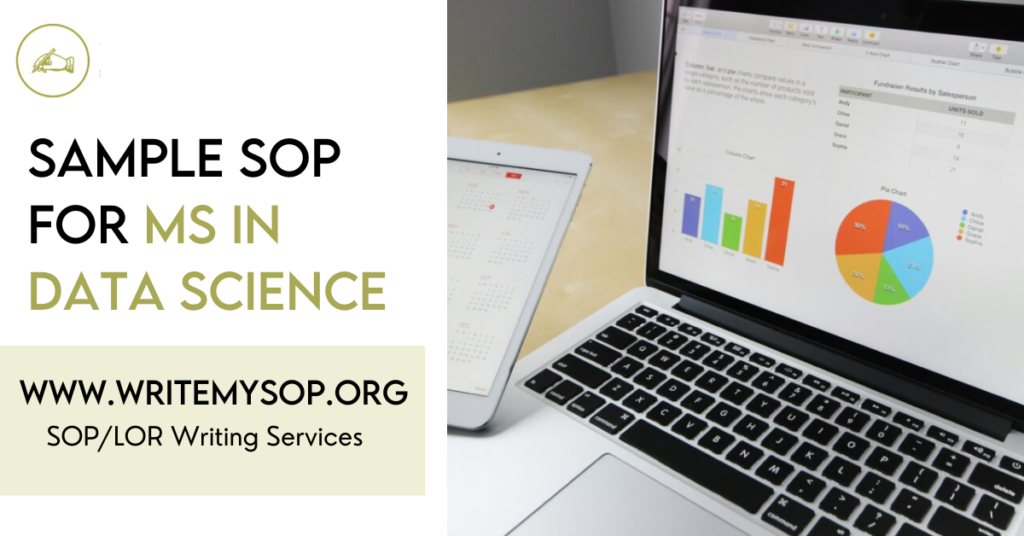SOP for MS in Data Science
Introduction
Crafting a Statement of Purpose (SOP) for a Master’s in Data Science is your opportunity to showcase who you are beyond just grades. It’s your chance to let your passion shine and narrate your unique journey. Let’s dive into how to construct an engaging SOP that sets you apart from the crowd.
What is an SOP?
An SOP is a personal essay that outlines your academic and professional background, motivations for pursuing further studies, and your future aspirations. Think of it as your narrative, a way to connect your past with your future in the field of data science.
Importance of SOP in Graduate Applications
Why is the SOP so crucial? Well, it’s often the only piece of your application that conveys your personality. Admissions committees look for insights into your motivations, interests, and goals. A well-crafted SOP can make a significant difference in the competitive world of graduate admissions.
Structure of an Effective SOP
To create an impactful SOP, consider this structure:
Introduction Section
Start with a compelling hook—perhaps a personal anecdote that illustrates your interest in data science. This could be a project, a moment in class, or even a challenge you faced that sparked your curiosity.
Academic Background
Detail your academic qualifications. Highlight relevant courses, projects, or research that align with data science. For instance, mention any statistics, programming, or machine learning courses that shaped your understanding.
Professional Experience
Discuss any internships or work experiences related to data science. Describe your roles, responsibilities, and key achievements. Were you involved in data analysis, programming, or using data visualization tools? Share your impact!
Research Interests
Share your specific interests within data science. Do you want to explore machine learning, big data analytics, or data ethics? Identifying your niche can help admissions committees see where you might fit in their program.
Career Goals
What do you aspire to do with your degree? Outline your short-term and long-term goals. Whether it’s working for a tech company, conducting research, or even starting your own venture, make it clear how the MS in Data Science will help you achieve these aspirations.
Why This Program?
Articulate why you’ve chosen this specific program and university. Mention faculty members whose work resonates with you, unique resources the program offers, or any special projects that excite you.
Conclusion Section
Conclude with a strong closing statement that reinforces your enthusiasm for the program. Summarize your key points and reiterate your commitment to contributing positively to the academic community.
Sample SOP for MS in Data Science
Let’s get into a sample SOP that encapsulates all these elements. Here’s how it might look:
Introduction
As a child, I was captivated by the magic of numbers and their ability to tell stories. This fascination grew during my undergraduate studies in Computer Science at XYZ University, where I first delved into the world of data. My journey has been a blend of curiosity and rigorous academic training, culminating in my aspiration to pursue a Master’s in Data Science.
Academic Background
My undergraduate coursework included extensive studies in programming, statistics, and machine learning. A standout moment was a project where I developed a predictive model for student performance using Python and scikit-learn. This experience solidified my love for data-driven decision-making.
Professional Experience
After graduation, I interned at ABC Analytics, where I was part of a team that worked on real-time data analysis for marketing strategies. My role involved using SQL to manage databases and visualize data trends, which further honed my skills and fueled my passion for data science.
Research Interests
I am particularly interested in machine learning and its applications in predictive analytics. I believe that understanding data at a deeper level can lead to innovative solutions in various industries, from healthcare to finance.
Career Goals
My goal is to become a data scientist who leverages data to drive strategic decisions in organizations. In the short term, I aim to gain hands-on experience through internships, and in the long term, I aspire to lead data-driven projects that make a meaningful impact.
Why This Program?
The MS in Data Science program at [University Name] stands out to me for its emphasis on practical applications and its renowned faculty. I am particularly excited about the opportunity to work with Professor [Name], whose research in machine learning aligns perfectly with my interests.
Conclusion
In conclusion, I am eager to immerse myself in the vibrant academic community at [University Name]. I am confident that the knowledge and skills I will gain will propel me toward my career goals in data science. Thank you for considering my application.
Conclusion
Writing an SOP can seem daunting, but remember, it’s your story. Be authentic, reflect on your experiences, and let your passion shine through. A well-crafted SOP can set you on the path to success in your data science journey.
FAQs
- What should I include in my SOP for MS in Data Science?
- How long should my SOP be?
- Can I use a personal story in my SOP?
- What if I lack professional experience in data science?
- How important is the ‘Why this program?’ section?
- Should I focus more on academic or professional experiences?
- Can I mention my future career goals?
- How can I make my SOP stand out?

